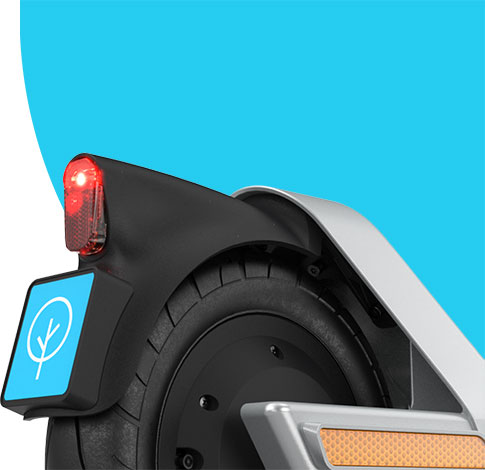Recent reports have demonstrated that we must deploy technologies that can help slash emissions today, instead of waiting for new technologies to be perfected and setting targets far into the future. E-scooters and other light electric vehicles are one such technology. Bird is already replacing car trips, and shows great promise for helping cities to significantly reduce transport emissions and achieve their own decarbonization goals.
Over the past two years, we’ve been working to understand the role that e-scooters can play in making transport more sustainable, and at the same time, working to minimize the environmental footprint of our operations. That’s why we’re particularly excited to share findings from a report we worked on with Carbone 4, The Role of E-Scooters and Light Electric Vehicles in Decarbonizing Cities.
The report looks at several elements that impact sustainability. In terms of the overall potential for e-scooters to have a climate impact, the report finds:
- Dockless e-scooters are being adopted at a pace that has never been seen before. Shared e-scooters are making sustainable transport convenient, easy, and fun, and people are taking them. After less than one year in operation, e-scooters have reached a modal share of around 2% in Paris — that is twice as fast as the growth of the city’s Velib’ bikeshare system. And e-scooters are getting many people on two wheels for the first time, suggesting the mode could be a gateway for many more trips on lightweight electric vehicles.
- Micro-modes could account for more than 20% of total trips in Paris by 2030. E-scooters and e-bikes are extremely energy efficient, and can help Paris achieve its climate goals through supporting access to transit and replacing short car trips. Further, e-scooters improve overall mobility access without increasing emissions.

When assessing sustainability, it’s also important to understand lifecycle emissions, that is, the greenhouse gas emissions associated with the manufacture, use, and disposal of a vehicle. Improving lifecycle sustainability of Bird vehicles has been a major priority, and we’ve invested heavily in research and development to improve the lifespan of our e-scooters. The report from Carbone 4 finds that design, maintenance, and retention are significant factors influencing vehicle lifespan, and in looking at Bird’s data, finds:
- Bird’s current custom designed fleet of e-scooters are projected to last 18 months. While our early fleet of consumer models lasted an average of 3.5 months, much has been improved in the vehicle design and operational practices. Every component of our custom models are designed in house, and built for frequent daily use. Regular maintenance and swappable parts have also helped to ensure the Birds last a long time.
The report concludes with several recommendations for operators and cities to further improve vehicle sustainability and encourage modeshift away from cars. It’s no surprise that a top recommendation finds that cities need to reallocate street space to provide connected and protected networks of greenlanes around a city. As we’ve seen in cities around the world, cohesive and well-designed greenway networks entice people to choose sustainable transport modes by ensuring that traveling on two wheels is convenient and safe.

All in all, the Carbone 4 report is an affirmation that e-scooters are part of the climate solution. There is no question that we need to drive less, and e-scooters are helping people to do that. Bird will continue to do our part to reduce emissions throughout our operations, and work with cities to integrate scooters into the overall transport system. Our hope is that this report inspires the kind of immediate action at a grand scale that will have a meaningful climate impact, and we are grateful to the Carbone 4 team for their partnership in producing this important work.

